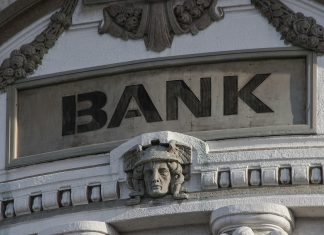The development of technology in recent decades has seen us move from personal computers to virtual reality in a fairly short time frame. One key example of virtual reality – the metaverse – has begun to take hold.
While there are many involved in tech-focused industries that know, and are excited for the potential of the metaverse and what it could bring, there is still a broad mainstream of people who know little to nothing of the technology.
Defined by TechTarget, the metaverse is a vision of what many in the computer industry believe is the next iteration of the internet – a single, shared, immersive, persistent, 3D virtual space where humans experience life in ways they could not in the physical world.
This could include touring cities, experiencing thrills and walking through historic monuments. However, for those in the financial world – the metaverse could offer a completely new way of trading and building digital assets.
Forbes gave an example of how finance and the metaverse could interlink. One example is virtual branches, where banks can sell banking products to digitally-native consumers or provide customer service to existing ones. It also cited Zelf, a startup that offers regulated services for transferring money between virtual worlds and the real world, as well as trading in-game items between players.
With such important – and potentially vulnerable – processes taking place, could this open the door to mass fraud?
According to Muinmos CEO Remonda Kirketerp-Møller, this may not be the case. “I think the metaverse will actually be safer than the internet, as it is likely to have, at least at the beginning, two points-of-verification, whereas the internet only has one.”
She continued, “In the early days of the internet – those of us who are old enough to remember those dark ages can attest – it was very common to distrust data presented there. And for a good reason: a lot of the data online, back then, was simply inaccurate. Historical facts were changed; typos were frequent and all-in-all not enough emphasis was put on the quality of the data.”
Kirketerp-Møller explained that a potential reason for this was due to the novelty of the internet at the time. “A lot has changed since then. The web today contains mostly reliable information, vetted and re-checked. A substantial part of the global financial transactions are being performed using it and it includes a very large number of control mechanisms meant to make sure the web keeps being both the world’s nervous system and memory alike.”
The Muinmos CEO believes a similar process may happen in the metaverse, due to the innate similarities of the two. “Both are digital representations of an envisaged reality, ‘cyber’ worlds which are infinite in nature, but are presented to their visitors in different interfaces.”
On this, Kirketerp-Møller explains that the world wide web is two dimensional – in that one can scroll up and down, go back to the previous page and more. However, the metaverse is a virtual, three dimensional world.
“Theoretically, a person’s identity in any of these virtual worlds needs to be verified against their “real world” identity, in a certain entry point,” she explained. “In the case of the internet, for example, no one checks a person’s identity upon logging in. You are completely anonymous up to the point you attempt to perform an action, like buying something, going past a membership or pay-wall.”
The metaverse, in this sense, at least at the beginning, has a better starting point, claims Kirketerp-Møller. “In order to access it, one needs an initial online registration. Ideally, this registration can verify the person’s identity, or some parts of it. The metaverse service providers can also assign some sort of “physical” attributes to that person, making them, thus, a lot less obscure than the usual web-surfer.”
This initial level of security, Kirketerp-Møller hopes, will suffice for small businesses selling their goods in the metaverse, such as shops who sell virtual clothing, or DJ’s performing in virtual clubs amongst other things.
However, companies that offer more expensive or ‘real-life related’ services, such as banks or webshops, can use the same payment and identity verification methods available today on the web. Kirketerp-Møller commented, “This means they will enjoy a double-layer of protection – the one that exists today, and the one supplied by the metaverse-operator itself.
“One would assume, that the most successful metaverses would be, eventually, the ones that provide their users the more options; and in order to provide more options, one needs to convince businesses that one has a high level of security and processes,” she added.
Kirketerp-Møller concluded, “Of course, a similar process like the one that happened with the world wide web is to be expected; but the leap from the WWW to the metaverse is not nearly as significant than the one from the analogue to the digital one, and as it will be supervised by a very interested party – the metaverse-operator – one should expect the levels of confidence in the metaverse to be quite high compared to the internet in comparable stages.”
Meanwhile, Anthony Quinn, founder of RegTech firm Arctic Intelligence, takes a different line – and believes that when it comes to the metaverse, the impacts of fraud would not be any more special there.
He said, “Fraud impacts, whether online or offline, can be felt everywhere. Like any new innovation (and this concept is not that new) is the huge popularity that these have as people are in a frenzy to take part in the modern-day “gold rush” to buy virtual real estate, infrastructure, advertising and other assets that they perceive will have huge value in the future.
“Personally, I think this is a fool’s errand, and not that different to people selling “stars in the sky”, it’s a great initiative with sentimental value I guess but at the end of the day, what do you own?
“That said obviously there are a lot of people willing to invest in digital and virtual assets so I could be spectacularly wrong but without tight regulatory controls there could be big opportunities for online scams – perhaps the virtual cops, regulators and judges could throw the perpetrators in a virtual jail cell!.”
Copyright © 2023 RegTech Analyst
Copyright © 2018 RegTech Analyst






